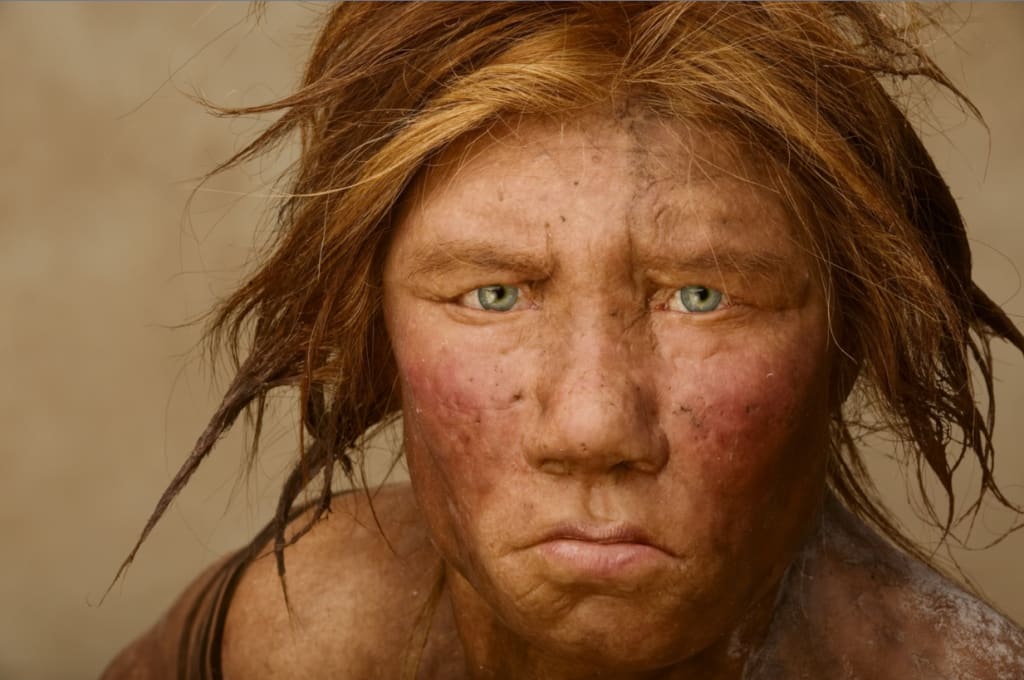English, Neanderthals, and Linguistic Evolution
The Enigma of Neanderthal Communication

The Neanderthals
In the vast tapestry of human history, the story of language is woven intricately with the threads of evolution and adaptation. One fascinating chapter unfolds when we explore the relationship between English, the language we communicate with today, and the Neanderthals, our ancient relatives. Let's embark on a journey through time, unraveling the linguistic connections that bind us with these enigmatic beings.
The Enigma of Neanderthal Communication
The Neanderthals, though often depicted as primitive, were not devoid of communication. Recent archaeological findings suggest that they had a complex system of gestures, vocalizations, and perhaps even a rudimentary form of language. Imagine the echoes of their voices resonating through the prehistoric landscapes.
Bridging the Communication Gap
While the specifics of Neanderthal language elude us, their ability to communicate was undoubtedly profound. This raises questions about the shared linguistic ancestry between Neanderthals and modern humans, especially speakers of English.
Language Evolution: A Dance Through Millennia
As humans evolved, so did their languages. English, a Germanic language with roots stretching back to the Anglo-Saxons, underwent a remarkable transformation. But what if remnants of Neanderthal communication influenced the languages we speak today?
Traces of Neanderthal Influence
Studies hint at the possibility that certain linguistic elements in English might be echoes of the Neanderthal legacy. The subtleties of pronunciation, non-verbal cues, or even the rhythm of speech could carry ancient imprints.
The Dance of Linguistic Adaptation
Language is dynamic, ever-changing, adapting to the needs and nuances of its speakers. English, in its evolution, might have incorporated elements from the primal languages of our Neanderthal kin, creating an intricate linguistic dance across time.
Embracing Our Shared Roots
In the tapestry of language evolution, the connection between English and the Neanderthals is a thread that binds us to our ancient past. It's a testament to the resilience of communication, a bridge that transcends the ages.
Celebrating Diversity in Language
As we explore the connection between English and the Neanderthals, let's celebrate the diversity of languages that enrich our human experience. Each linguistic thread contributes to the vibrant mosaic of our shared heritage.
A Linguistic Tapestry Unraveled
In the symphony of languages, English stands as a testament to the continuous interplay between the past and the present. The echoes of Neanderthal communication may be subtle, but they add a unique hue to the linguistic canvas of our collective story.
Preserving the Threads of Heritage
Understanding the connection between English and the Neanderthals encourages us to preserve and cherish linguistic diversity. It reminds us that language is not just a tool for communication but a living heritage that intertwines with our very identity.
In the dance of time, English and the Neanderthals share an unspoken connection. While the specifics may remain shrouded in mystery, the essence of communication transcends the boundaries of eras, creating a narrative that resonates with the human spirit.
FAQs About English, Neanderthals, and Linguistic Evolution
**Q1:** Was there definitive evidence of Neanderthals having a language?
**A:** While evidence is not definitive, recent archaeological findings suggest Neanderthals had a complex communication system.
**Q2:** How did English evolve over time?
**A:** English evolved from the Germanic languages spoken by the Anglo-Saxons, undergoing significant transformations through history.
**Q3:** Can we trace Neanderthal influence in modern languages other than English?
**A:** Studies hint at potential influences in various languages, showcasing the interconnectedness of linguistic evolution.
**Q4:** Why is preserving linguistic diversity important?
**A:** Preserving linguistic diversity is crucial for understanding our shared heritage and maintaining the richness of human expression.
**Q5:** How does the linguistic connection between English and the Neanderthals impact our perception of language?
**A:** It highlights the continuous interplay between different epochs, emphasizing the dynamic nature of language evolution.
Watch Online Full Documentary
About the Creator
Mountain Tree
Meet Mountain Tree: Crafting Words, Scaling Heights
In the realm of literature, where words become the architects of imagination, one writer stands tall, rooted in the profound love for storytelling and a passion for nature.






Comments (1)
You take some massive jumps to conclusions here. Could you please site your resource studies? Can you site where in linguistics, anyone states that Eglish solely "evolved from the Germanic languages spoken by the Anglo-Saxons"? To my understanding, it evolved from the Proto-Indo-European base some 5k yrs ago. From that same base sprouts the Romance languages, Greek, Eastern European group, and, yes, Germanic. There's an obvious interplay in evolution since then with trade being the primary factor, and war the secondary, in which the new languages re-influenced one another. But sprouted from German is something I cannot find documented. And, considering H. sapiens neanderthalensis died off some 40k years ago with no surviving record of culture, it seems highly unlikely that whatever shared common cultural roots we may have are forever lost to history. But, again, happy to read the source you've sited.